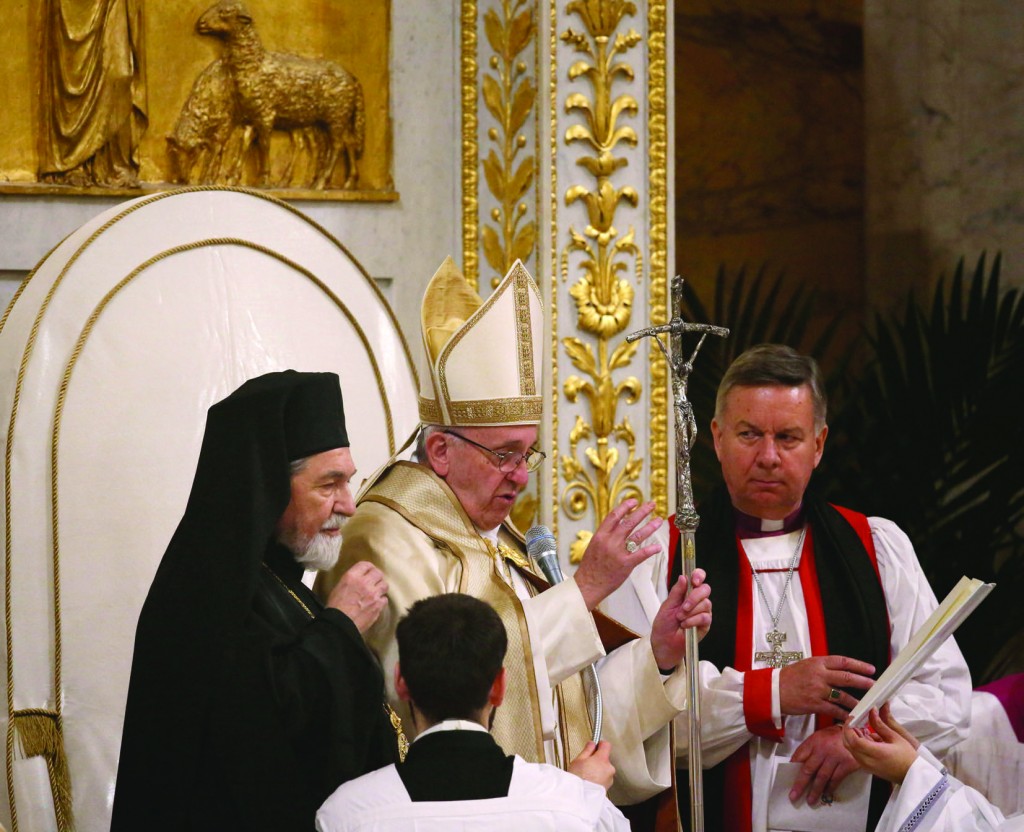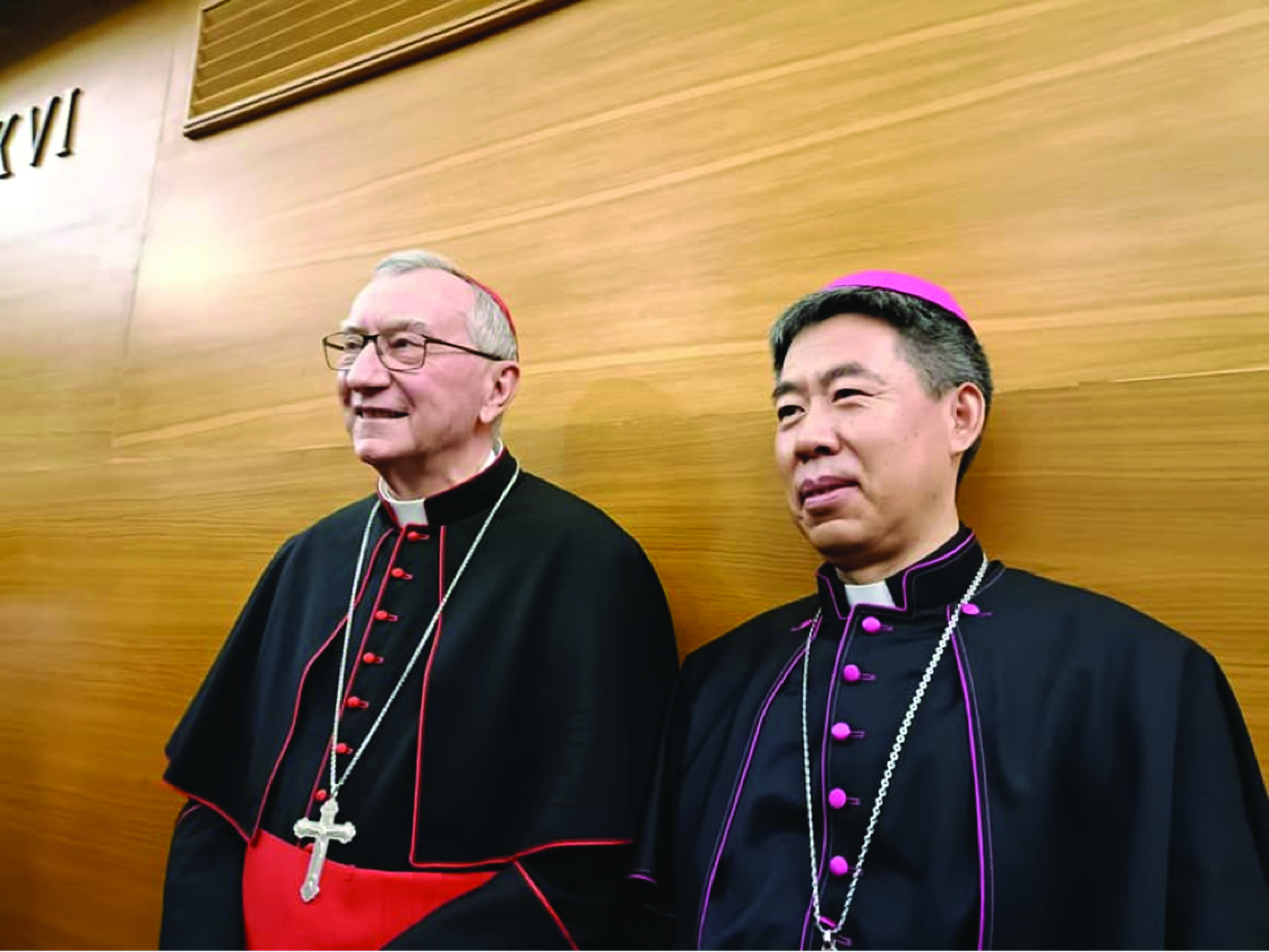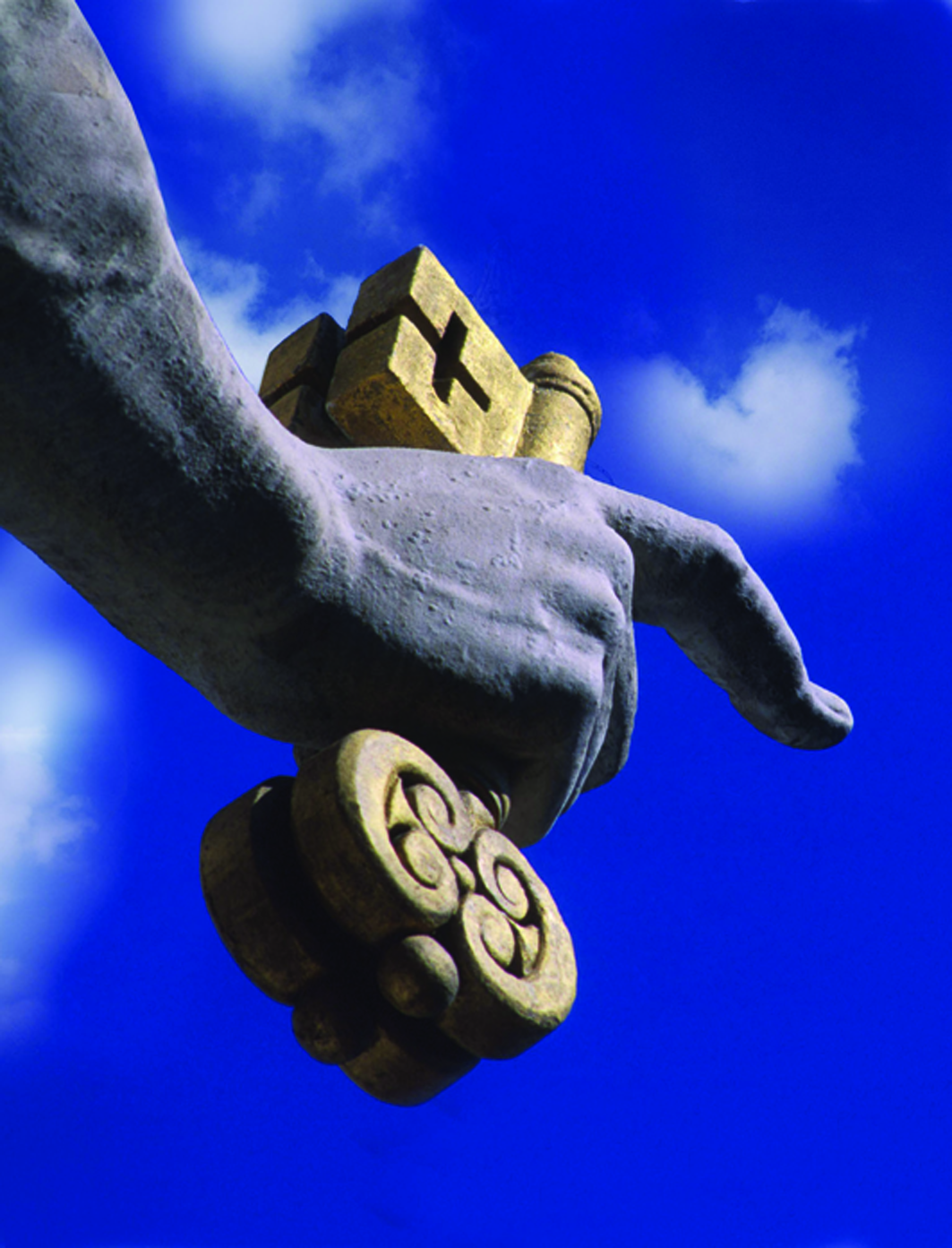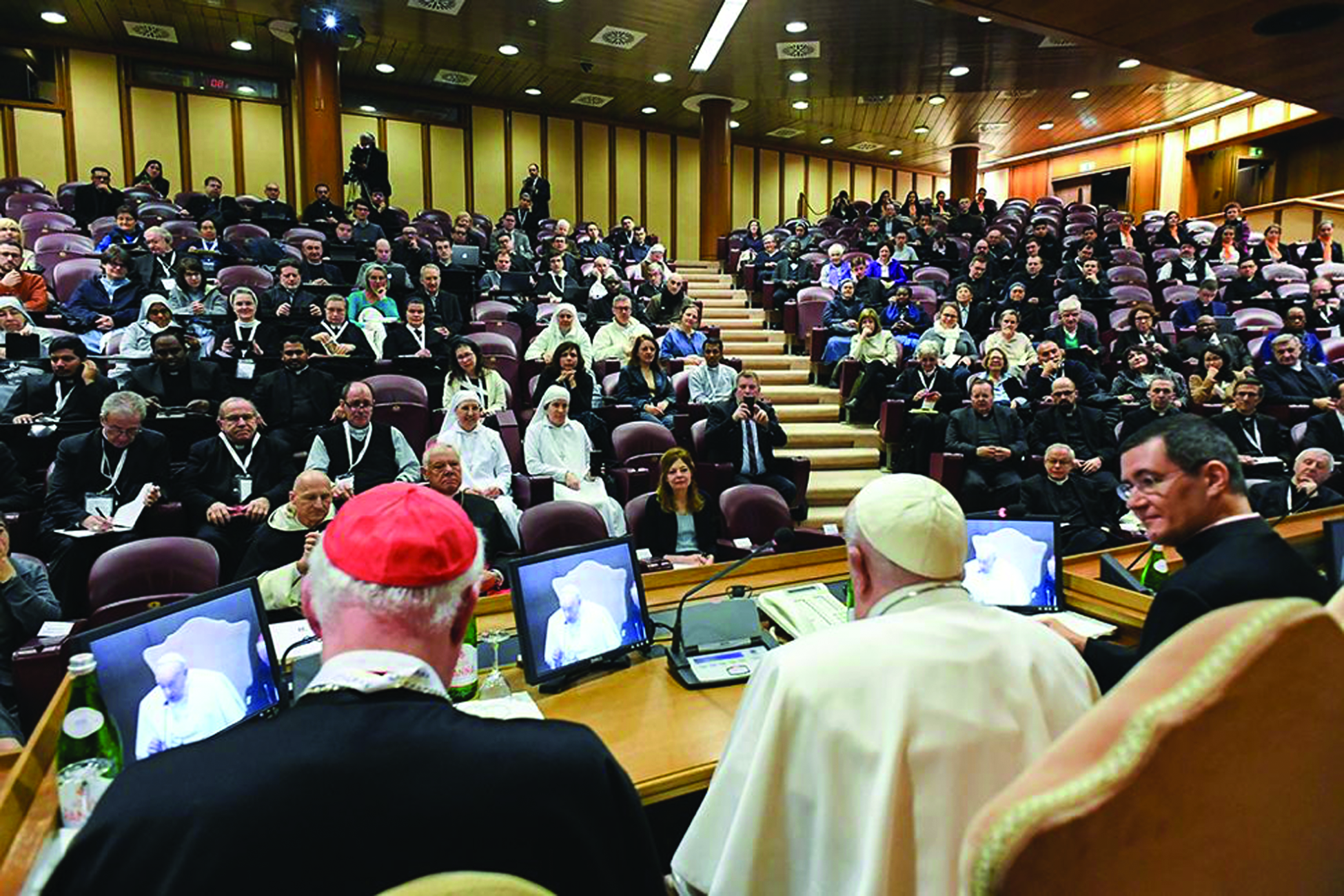
Celebration of Vespers led by Pope Francis in the Basilica of St. Paul Outside-the-Walls. Orthodox Archbishop of Italy and Malta Gennadios Zervos and the Director of the Anglican Centre in Rome David Moxon
For centuries, Catholics and Protestants fought wars. Their divisions were profound and caused wounds. Now, says Francis, the search for Christian unity must trust in “the Father’s mercy”
Pope Francis on January 25 in Rome asked for “mercy and forgiveness” for the way Christians have behaved towards each other over the centuries, saying we cannot let the weight of past faults continue to contaminate our relationships.
The Pope’s words came in his homily at an ecumenical celebration of Vespers in the Papal Basilica of St. Paul Outside-the-Walls, marking the end of the Week of Prayer for Christian Unity.
In his prepared remarks, the Holy Father focused on the need for divided Christian communities to walk together in the way of the Lord, in the knowledge that unity is a gift of heaven and in the understanding that all service rendered to the cause of the one Gospel builds up the one true Church and gives glory to the one Lord, Jesus Christ.
“While we journey together toward full communion,” said Pope Francis, “we can begin already to develop many forms of cooperation in order to favor the spread of the Gospel — and walking together, we become aware that we are already united in the name of the Lord.”
Pope Francis placed his reflections in the key of the Jubilee Year of Mercy, saying that as Bishop of Rome, he wanted “to ask for forgiveness for the behavior of Catholics towards Christians of other Churches” which has not reflected Gospel values. At the same time, he said, “I invite all Catholics to forgive if they — today or in the past — have been offended by other Christians.”
“In this extraordinary Jubilee Year of Mercy, we must always keep in mind that there cannot be an authentic search for Christian unity without trusting fully in the Father’s mercy,” he said. “God’s mercy,” the Pope said, “will renew our relationships.”
Pope Francis told representatives of the other Christian Churches and communities present in the basilica that we can make progress on the path to full visible communion “not only when we come closer to each other, but above all as we convert ourselves to the Lord.” At the start of Vespers, the Pope invited Orthodox Metropolitan Gennadios, representing the Ecumenical Patriarchate, and Anglican Archbishop David Moxon to walk with him through the Holy Door of the Basilica, while at the end of the celebration he invited them to join him in giving the final blessing.
Pope will visit Lund, Sweden, to celebrate Catholic-Lutheran dialogue
Pope Francis’ visit to the Swedish city of Lund at the end of October to take part in a joint commemoration of the start of the Reformation will mark the first time that this event has been celebrated in an ecumenical way.
The Vatican announced January 25 that the Pope and leaders of the World Lutheran Federation will jointly host the event on October 31 in cooperation with the Church of Sweden and the Catholic diocese of Stockholm.
In the past, all major anniversaries of the Reformation have been moments of “conflict and rivalry,” according to Bishop Brian Farrell, Secretary of the Pontifical Council for Promoting Christian Unity. He said the event will mark, in a highly symbolic way, the fruits of 50 years of patient dialogue between his Council and the Lutheran World Federation. Farrell said the Catholic-Lutheran dialogue has made such significant progress because “we’ve been able to go to the heart of the controversies of the 16th century” and at the same time, “develop a new understanding, mutual trust and a real capacity to work together on many projects.” The event in Lund, he suggests, comes “almost as a signature at the end of these 50 years and an opening of a new phase of positive dialogue with the Protestant world.”
Farrell says people in the pews are sometimes impatient with the slow progress of dialogue, but he adds that the “Churches have to be sure that the steps being taken correspond to their innermost treasury of truth.”
Reflecting on the gifts that the Reformation brought to the whole Christian world, Farrell says it’s clear that Luther was speaking the truth when he protested against the many abuses in the Church, abuses that the Council of Trent then worked to correct. In the struggles and conflicts that followed the Reformation, he says, the two sides hardened in rejection of each other “so that the idea that Luther was right” about certain things was entirely lost.
—Vatican Radio






Facebook Comments